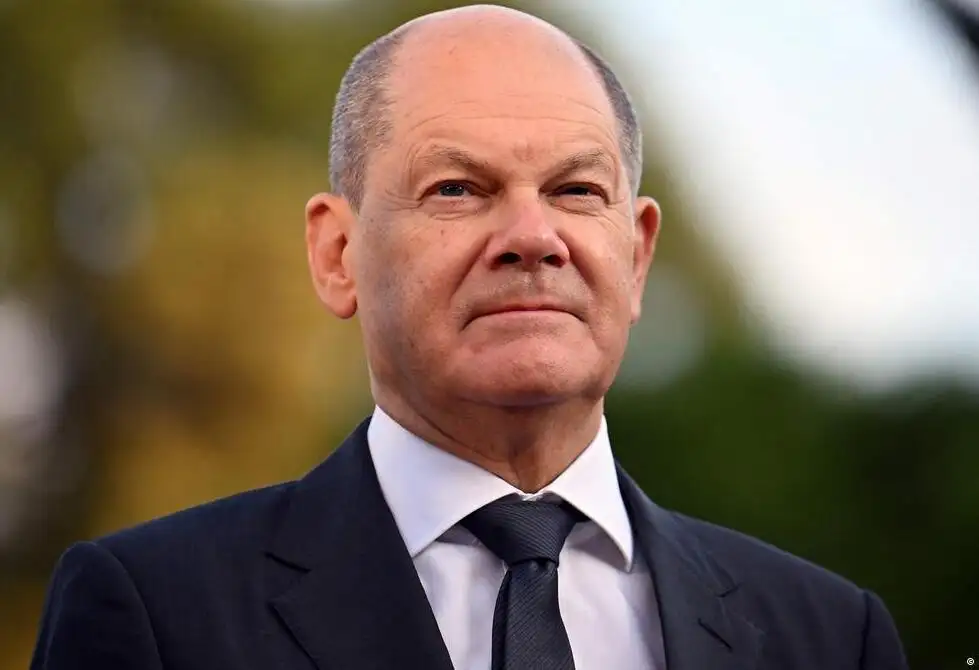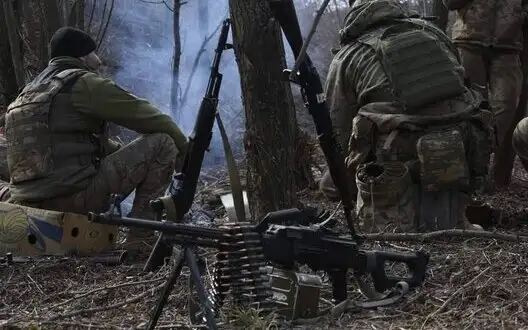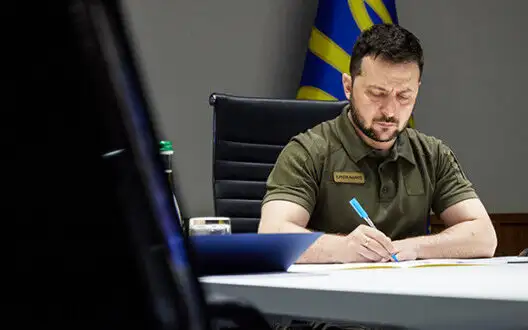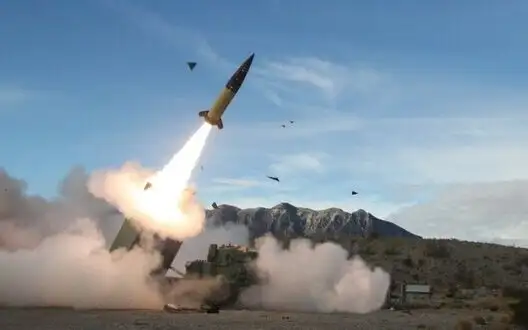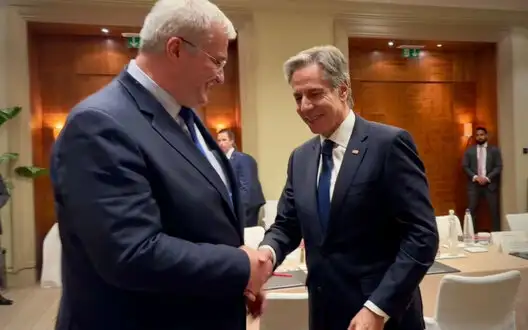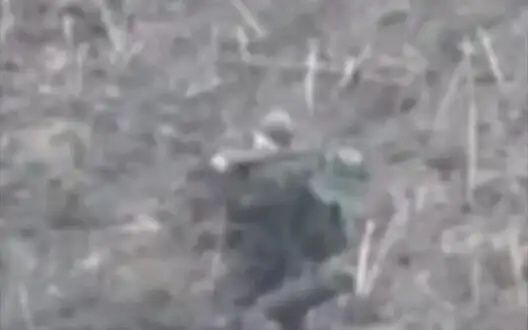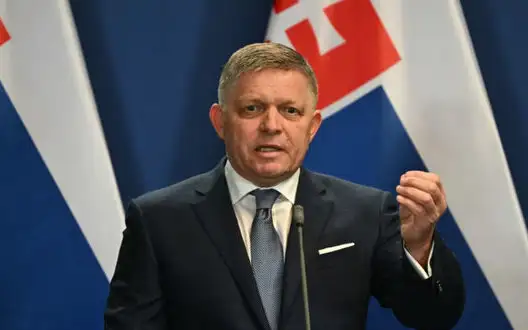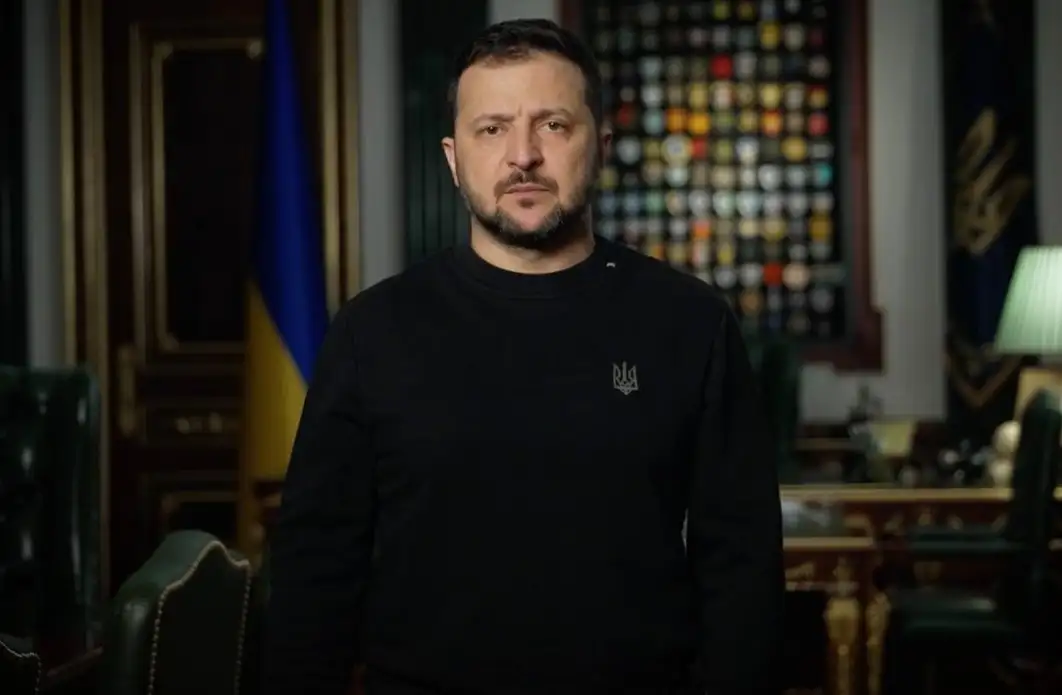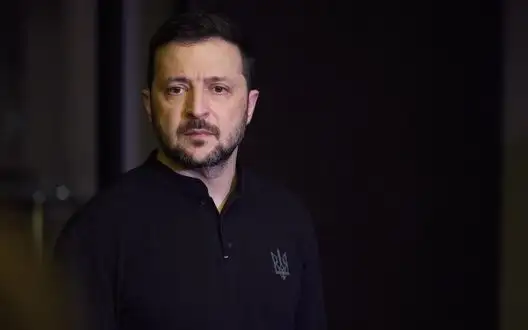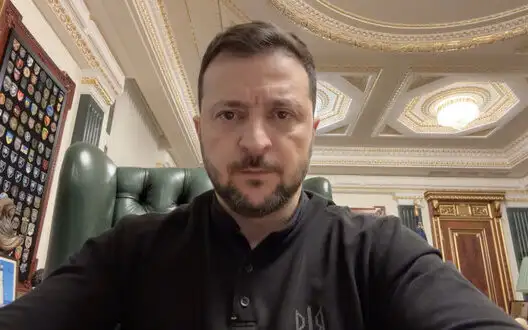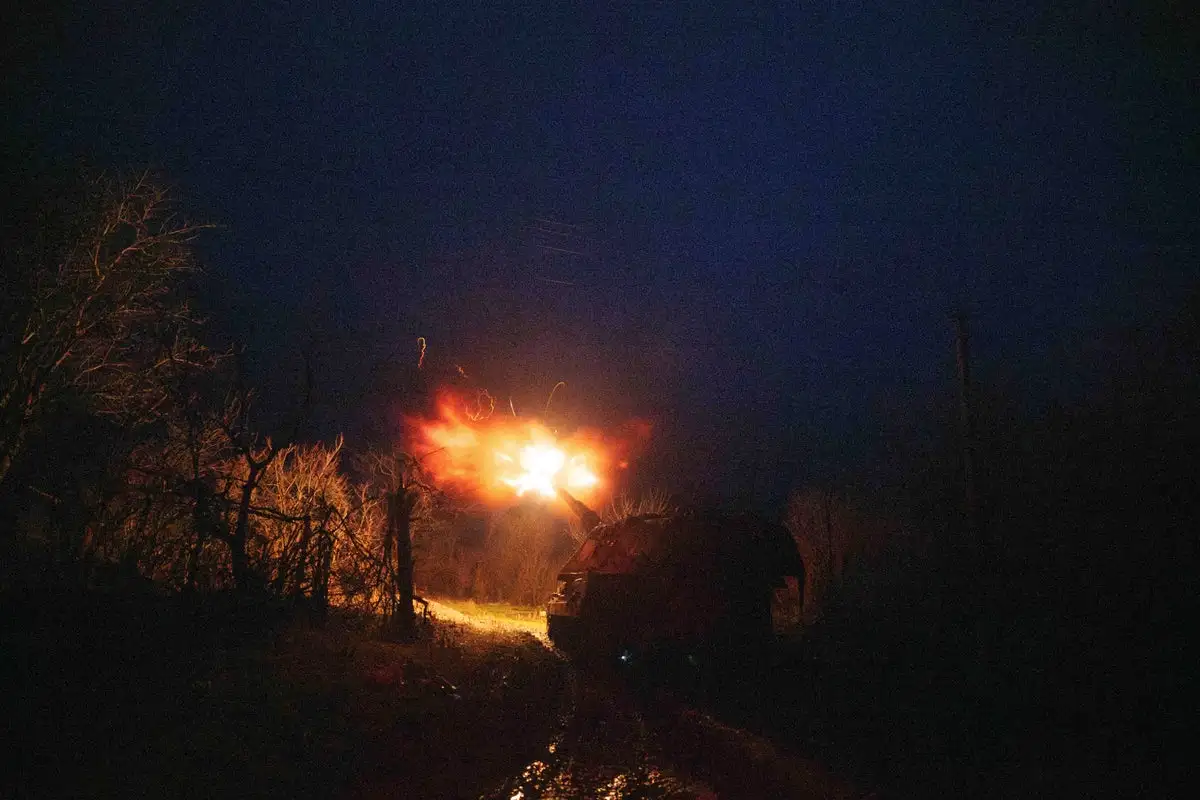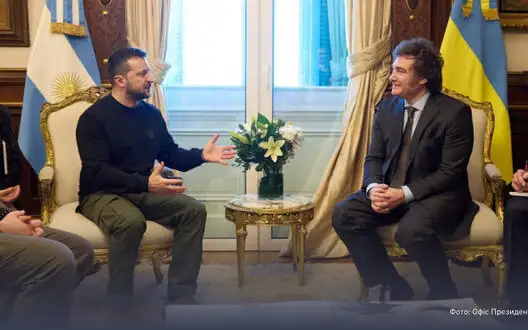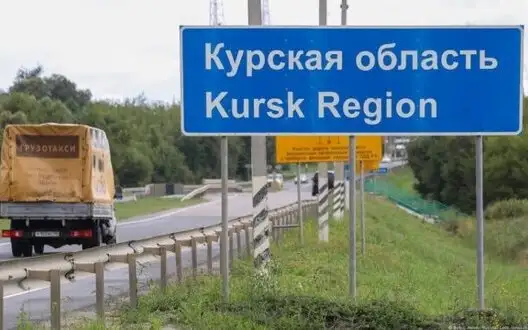Ukraine-Switzerland 2024: the busiest year in the bilateral relations
www.pravda.com.ua
Fri, 27 Dec 2024 08:00:00 +0200
2024 has been a very intense year in the bilateral relations between Switzerland and Ukraine, probably the busiest we have ever been witnessing since Ukraines Independence 33 years ago.
The pictures of the world leaders gathering in June at the Summit on Peace in Ukraine at the Swiss Brgenstock Resort overlooking Lake Lucerne to discuss what a future peace process could look like, will remain as a testimony of one of the major diplomatic efforts deployed this year. The year started in Davos with Switzerland hosting a meeting in the framework of the Peace Formula at the level of the National Security Advisers.
In June, Summit on Peace in Ukraine took place in Switzerland.
In September, Switzerland recognized the great Ukrainian famine of 19321933 Holodomor as genocide against the Ukrainian civilian population.
The Ukraine Mine Action Conference held in October in Lausanne underlined Switzerlands commitment to support Ukraine in its huge challenge to demine vast portions of its territory.
The President of the Swiss Confederation, Viola Amherd, had the honour to welcome President Volodymyr Zelenskyy to Switzerland twice this year, as well as Prime Minister Shmyhal.
Our Foreign Ministers met several times.
The Speaker of the Verkhovna Rada, Ruslan Stefanchuk, and the Vice Prime Minister for Innovations, Development of Education, Science amp Technologies Minister of Digital Transformation of Ukraine, Mykhailo Fedorov, also paid official visits to Switzerland.
Quite an impressive bilateral agenda indeed Ukraine has defended itself for 1037 days from the largescale military aggression of the Russian Federation against its territory, its independence, its sovereignty and its people.
I have been in Ukraine for just a bit more than half of this time.
556 days have passed since I had the privilege to hand over my socalled letters of credence confirming my Governments decision to appoint me as an Ambassador to Ukraine to President Volodymyr Zelenskyy in the courtyard of St.
Sophie Cathedral in Kyiv.
Since that day, it has been my privilege to serve in a country at war with such a welcoming and kind population and with easily accessible government authorities despite all the difficulties. A trustful and longstanding partnership Switzerlands cooperation and recovery efforts A fact which remains little known is that Switzerland did not start to support Ukraine in 2022, nor in 2014.
Switzerland is supporting Ukraine with joint cooperation projects for almost thirty years.
In the fields of good governance and decentralization, health, the promotion of small and medium enterprises and the development of smart cities.
In 2022, priorities have been adapted to take into account the new challenges brought by the fullscale military aggression.
However, the overall direction of our engagement proved to be right, as these topics still remain very relevant.
The decentralization is widely seen as an important reason why the municipalities stayed resilient in the wartime.
The demand for quality healthcare, including war trauma rehabilitation and mental health, will only increase in the future.
A new priority which was added to our portfolio is humanitarian demining rendering agricultural lands, forests and schools safe is the prerequisite for economic recovery.
But also assisting victims and fostering the risk awareness of the population in front of the dangers represented by landmines and explosive remnants of war. The Swiss Government has announced its intention to contribute with 5 billion EUR to Ukraines recovery in the next 12 years, while 1.5 billion EUR have been allotted for the coming four years.
The new cooperation programme for 20252028 is currently been drafted one new aspect will be the increased engagement of the private sector, as the needs in Ukraine clearly overpass the possibilities of the public sector.
Through our humanitarian team, we are proud to be able to provide support and be present with our own team travelling to different parts of the country, having close relations with the regional and local authorities as well as local implementation partners.
This allows us to react swiftly and efficiently to evolving needs.
Since my appointment, I always have the goal to go out of the Kyiv bubble and to see the country without the capitals gloss.
Vinnytsia was the destination of my first trip out of Kyiv in July 2023.
The dozens of Mirage and Tram 2000 trams running the streets of the city still proudly wear their blue and white design in the colours of Zurich.
With the arrival of many IDPs to certain cities and the needs of people with disabilities, the development of efficient public transport gains also in importance elsewhere.
Buses from the Swiss city of St.Gallen have been delivered to the City of Chernihiv this autumn, and Lviv will shortly witness the first red lowfloor trams from Bern in its streets. Vinnytsia is also the city that brings back memories of my first Kherson cake I tasted in a small relocated bakery.
In supporting early recovery efforts, we assist Ukrainian micro and small businesses bakeries, cafs, textile ateliers.
These entrepreneurs provide hope to their fellow citizens, in particular in areas close to the front.
Not only Ukrainian, but also Swiss business operating in Ukraine has gone through difficult times, but the overwhelming part of the companies have stayed in the country, showing an incredible resilience, keeping jobs, and contributing to national taxes.
It is with pleasure that I see Swiss companies making major investments in new production facilities in Volyn and Lviv regions.
Recently, I had the honour to sign an MoU with the City of Kharkiv on a pilot project that will help enable Swiss business to provide goods for the partial repair of damaged civilian buildings in the city.
It is the first step towards broader engagement of Swiss business in the reconstruction process of Ukraine. The challenges and the needs differ widely from one area to another in Ukraine.
Therefore, we need a whole range of instruments to be deployed simultaneously.
In the east, Switzerland is very active with humanitarian assistance.
We work with all the major UN agencies which play a key role in the support to Ukraine, but also with many local partners.
The localization of the humanitarian response is key to ensure the necessary resilience.
This years winter is extremely challenging for Ukrainians due to the repeated attacks on the critical energy infrastructure.
We provided generators, solid fuel, winter clothing, help to repair damaged homes, heat pumps and energy systems, and meet urgent humanitarian needs with an additional winter contribution of around 45 million EUR. One more almost unknown fact is that Switzerland was among the first donors to believe in and support the Diia app.
Since then, eservices and digitalization of Ukraine are among our key priorities.
With the Ministry of Digital Transformation, we have recently signed an additional 2.8 billion UAH support for the EGAP programme.
In the meantime, Ukraine has overpassed most other countries, and we have a lot to learn from Ukraine when it comes to the provision of digital public services.
We are glad also to support online education, but more than that we try to revive the offline education, which is crucial for Ukrainian children.
This September, in Chernihiv, I visited damaged schools which are currently being renovated with Swiss funding through the Decide project.
Apart from it, we try to focus on the Vocational and Training Education, which is very popular in Switzerland.
In Ukraine, VET system is still considered not that prestigious, unfortunately, but it is the only way to train indemand specialists who will be involved in the reconstruction and restoration of Ukraine. When it comes to Switzerland, we cannot forget to mention our efforts in peacebuilding and human rights initiatives.
This involvement includes a wide range of topics from delivering DNA analyzers for identification of missing persons to supporting Ukrainian human rights NGOs and ensuring accountability and justice for victims.
What means neutrality in the 2020s The military aggression of the Russian Federation against Ukraine had an impact on Switzerlands foreign policy and the Swiss engagement in Ukraine.
Switzerland is a neutral country.
But this does not mean indifference.
Quite to the contrary.
Switzerland has been welcoming more than 100000 refugees from Ukraine, currently about 67000 are still in the country.
Switzerland has adopted the sanctions of the EU.
During its two years as an elected member of the UN Security Council, Switzerland has over and over again condemned in the strongest terms Russias violation of international law and the UN Charter, including the sovereignty and territorial integrity of Ukraine. International organizations, notably the UN and the ICRC, play a very important role in alleviating the suffering of the Ukrainian people.
Many partners from International Geneva, like the Geneva International Centre for Humanitarian Demining, the Geneva Center for Security Sector Governance, FSD Fondation Suisse de Dminage, Geneva Call, Humanitarian Dialogue and many more are active in Ukraine. And, International Humanitarian Law the Geneva Conventions aims at keeping a minimum of humanity even in an armed conflict.
This precious set of rules must be kept intact and not undermined.
We have no alternative to it. Still, the question of Switzerlands neutrality is the one that many Ukrainians ask me.
Let me briefly explain it here.
The basis of Switzerlands neutrality is our Neutrality Act.
It only applies to the military sphere.
Basically, a neutral state cannot do two things it cannot join a military alliance and it is not allowed to support warring states militarily.
But beyond the Neutrality Act, the government is also bound by our War Material Act, which has a provision that excludes exports or the reexport of war materiel to warring parties.
But there are deliberations in our parliament for a while on how to find a solution to this issue.
Several ideas are being discussed in parliament. I think that our neutrality was one of the reasons why the first Summit on Peace in Ukraine was held in Switzerland and why so many countries agreed to participate in it.
Without a doubt, the event was the peak of our bilateral relations this year.
Months of preparation, coordination and intense work by both the Ukrainian and Swiss sides.
And tangible results.
100 States from all over the world and international organizations.
The aim of this summit was to initiate a peace process and engage for the first time in a dialogue at the level of Heads of State and Government on what such a peace process could look like.
The joint communiqu represents a milestone in this regard.
2025 will with no doubt be another intense year in our bilateral relationship.
Switzerland will continue its efforts in supporting Ukraine and the international community on the way towards a comprehensive, just and lasting peace.
May 2025 bring the brave Ukrainian people hope for a better future.
Felix Baumann, Ambassador of Switzerland to Ukraine and the Republic of Moldova
